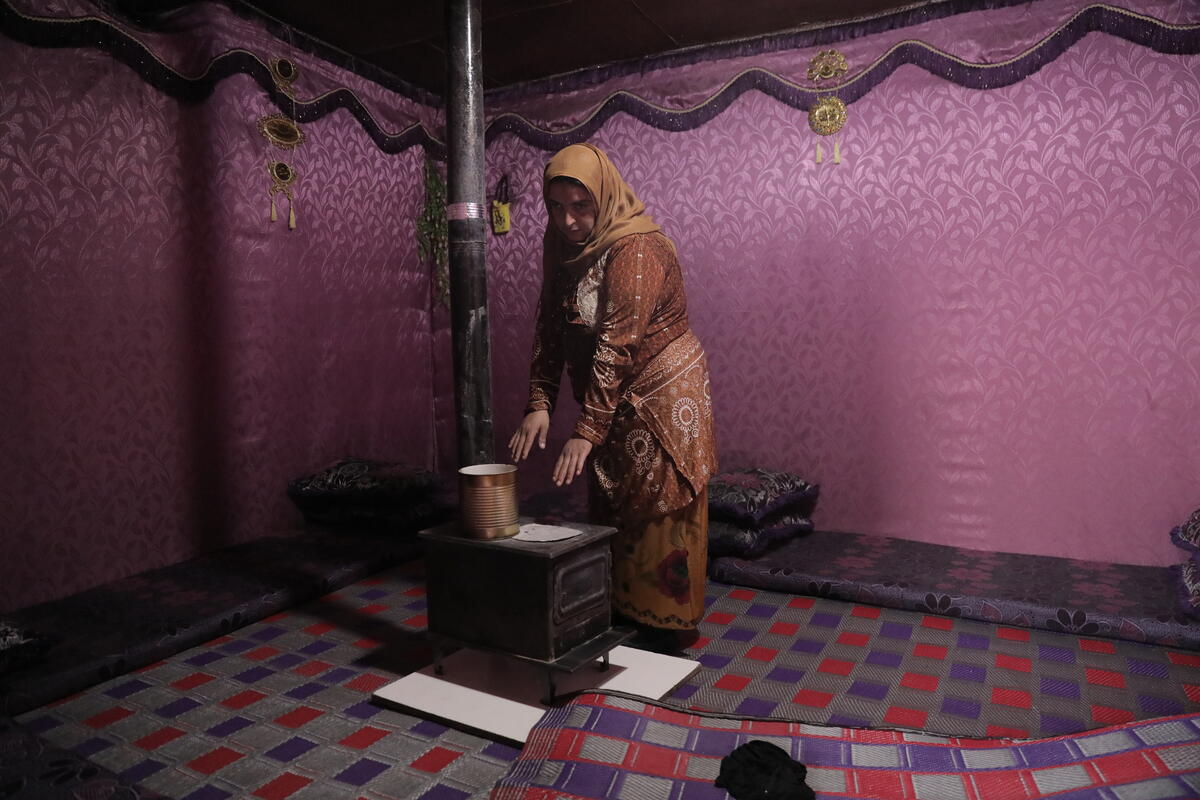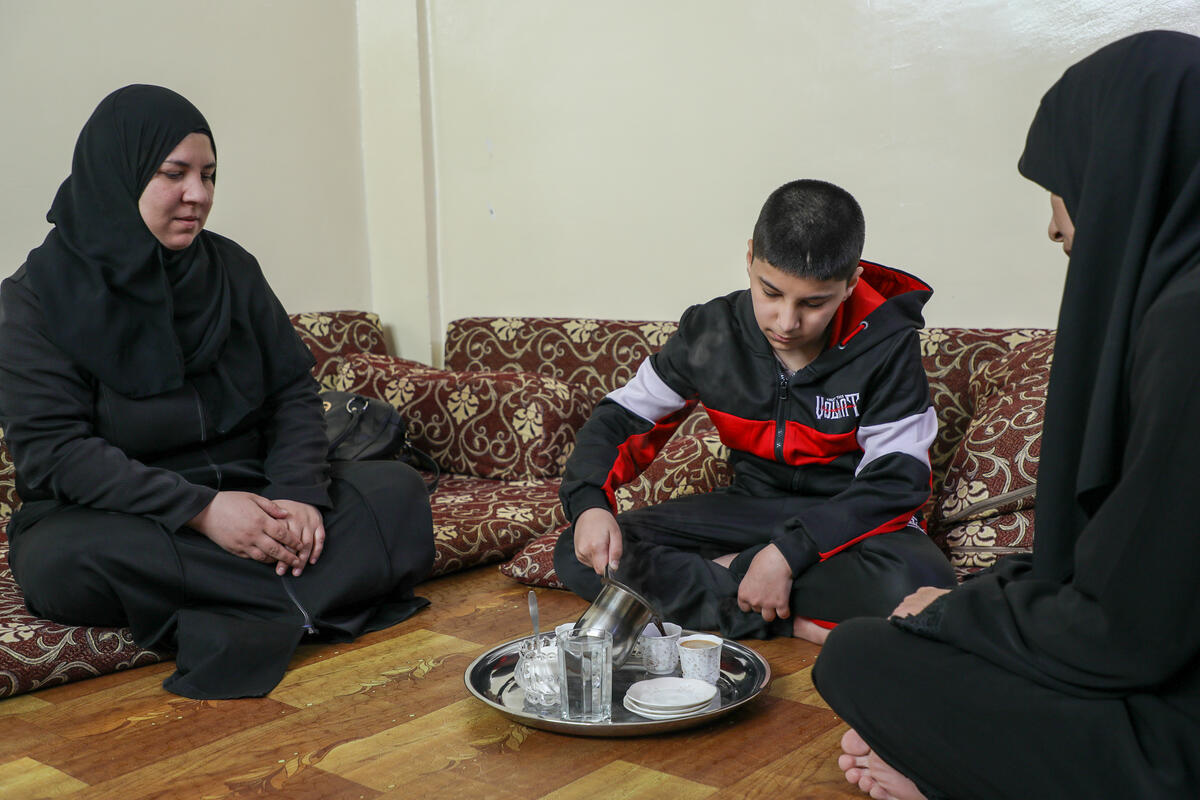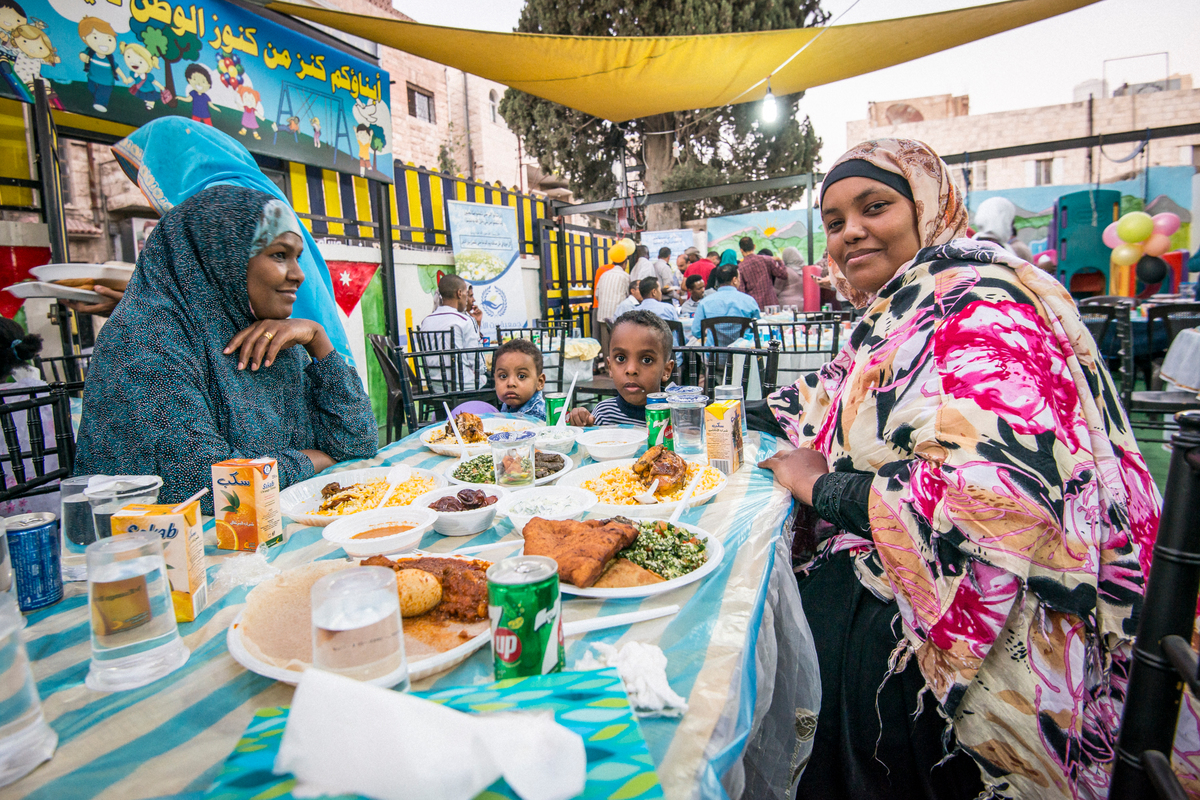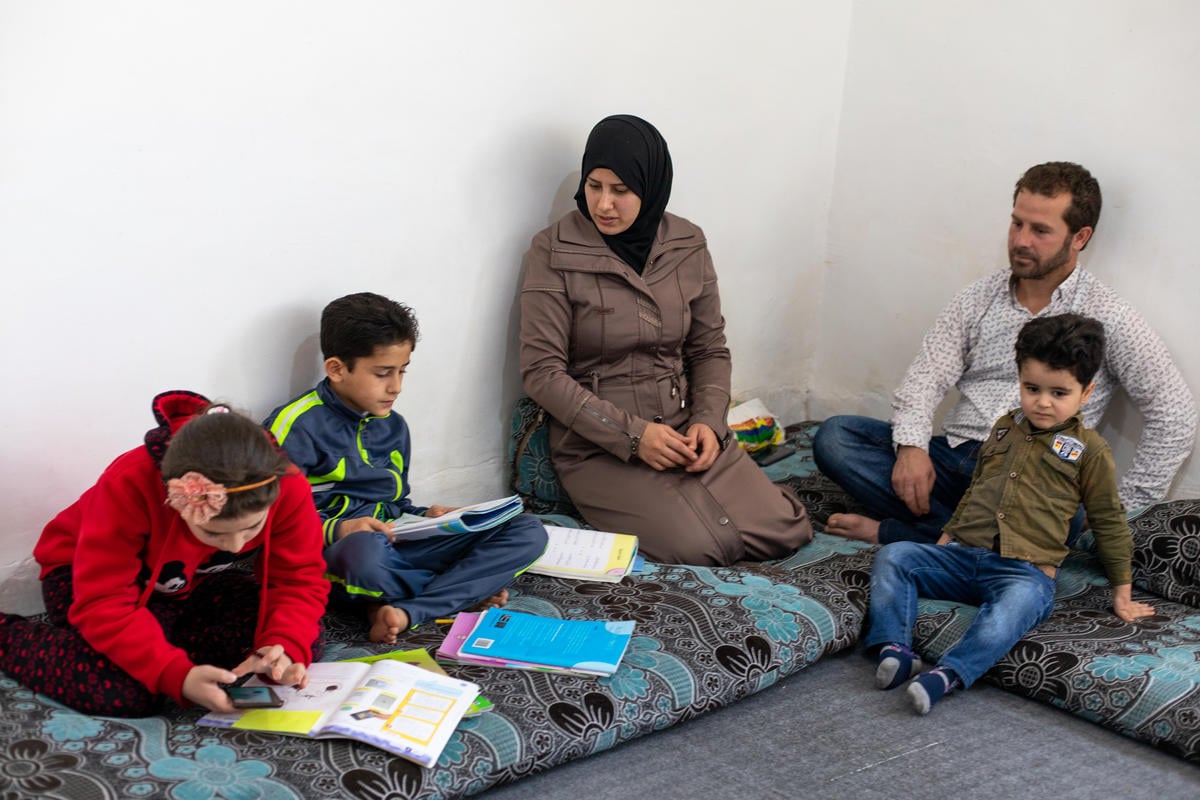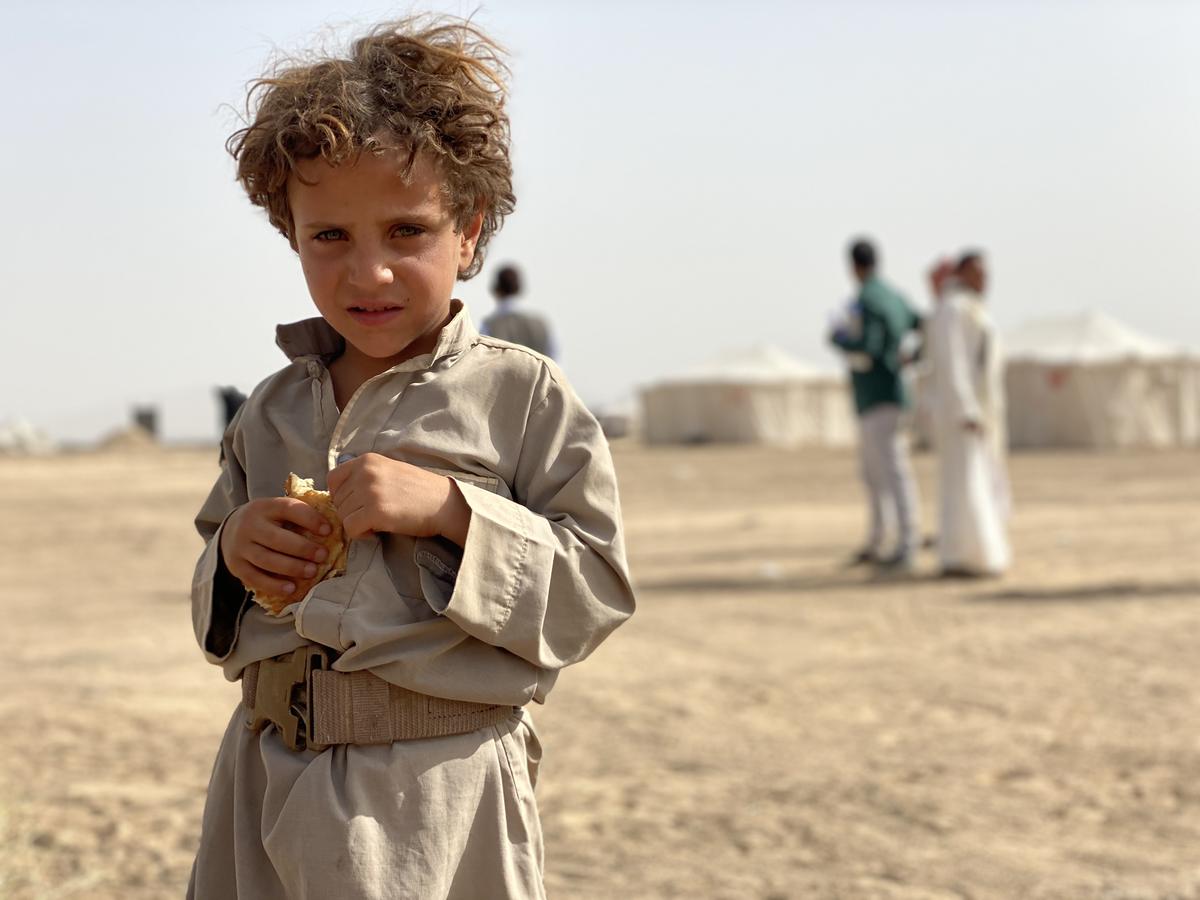Muslim refugees strive to maintain Ramadan traditions in Hungarian centres
Muslim refugees strive to maintain Ramadan traditions in Hungarian centres

BUDAPEST, Hungary, November 3 (UNHCR) - "Ramadan is about belonging together, and about the importance of the community and the family," explains Abdul, an Afghan refugee living in the Békéscsaba refugee reception centre in south-eastern Hungary.
"Here in Hungary, we have observed Ramadan in the refugee camp with other Muslim refugees, and our meetings reminded me of the many warm and cheerful gatherings we had at home before I had to flee," he says.
Ramadan is the month of prayer and repentance observed globally by one billion Muslims. For the believers of the Muslim faith, it means a period of mental and physical purification during which they do not consume any food or drinks between sunrise and sunset. However, once the sun has gone down, Muslims traditionally enjoy a series of meals, ranging from the initial iftar (breakfast) of dates and water to sahur (the last meal before dawn), which often consists of couscous and milk. In many ways, the succession of Ramadan meals has the air of a feast held in phases throughout the hours of darkness, every night for a month.
Far away from their homeland and communities, asylum seekers and refugees can find it difficult to observe Ramadan properly. There are currently some fifty Muslim refugees in three reception centres run by the Hungarian Government who are actively observing Ramadan. They arrived in Hungary from distant countries such as Iraq, Iran, Sudan, Somalia, Afghanistan and Algeria and they do their best to comply with the regulations and customs of their religion despite their unfamiliar new environment.
All the refugee reception centres in Hungary are equipped with prayer rooms that are decorated and maintained by the refugees themselves. They are furnished with carpets and equipped with multiple language versions of the Holy Koran. Maintaining the traditions of the refugees' lost homelands and communities, however, involves much more than merely having the right sort of room and furnishings.
As Shakir, a Turkish Kurd refugee in the Békéscsaba reception centre explains: "At first, it was not easy to act as a real Muslim community, as we all come from different countries and we speak so many different languages. But observing Ramadan has really forged us together. When we sit down in a circle to eat after sunset, we now look like any other Muslim community in the world. We are all contributing to the meal with our food rations, cutlery, napkins, and most importantly, our stories and memories which we share with each other."
Abiding by the special Ramadan dietary customs is difficult in a camp environment in predominantly non-Muslim countries - just as Christians can find it difficult locating turkeys, geese and other traditional Christmas foods in non-Christian countries.
For a start, the Ramadan meal schedule is radically different from the normal three meals a day, with all meals taking place in the evening or during the night. Camp managers find it a real challenge to give freshly-cooked warm meals to refugees in the evenings, since the kitchen staff have finished their normal working hours by the time refugees are allowed to have even the first of their Ramadan evening meals. As a result, in most cases, refugees receive canned food and cold meals which often leave a lot to desire in terms of quality, and also jar with the strong traditions governing the types of food consumed during Ramadan.
"We calculate the calories and we try to give equally nutritious food to Muslims during Ramadan as in non-fasting periods. However, it's true that without contributions from Muslim NGOs and volunteers based in Hungary, the diet of refugees during Ramadan would be rather dull," says a social worker from the Békéscsaba refugee reception centre.
Indeed, the support Muslim refugees may receive from local Muslim organizations, religious groups and private individuals is essential. In Bicske, in north-western Hungary, for example, refugees have been preparing for the great end-of-Ramadan feast - the Eid el Fitr - which in most Muslim countries is being celebrated today.
"We have a group of Muslim businessmen living in the capital city of Budapest and they act as patrons," explains one of the refugees involved in the preparations for the big event. "With their support, we will purchase lamb meat and cook it in the camp kitchen according to our traditions. For us, this special dinner will not only mean the end of Ramadan, but it will also symbolize the start of a new life in Hungary."
By Andrea Szobolits in Budapest, Hungary

